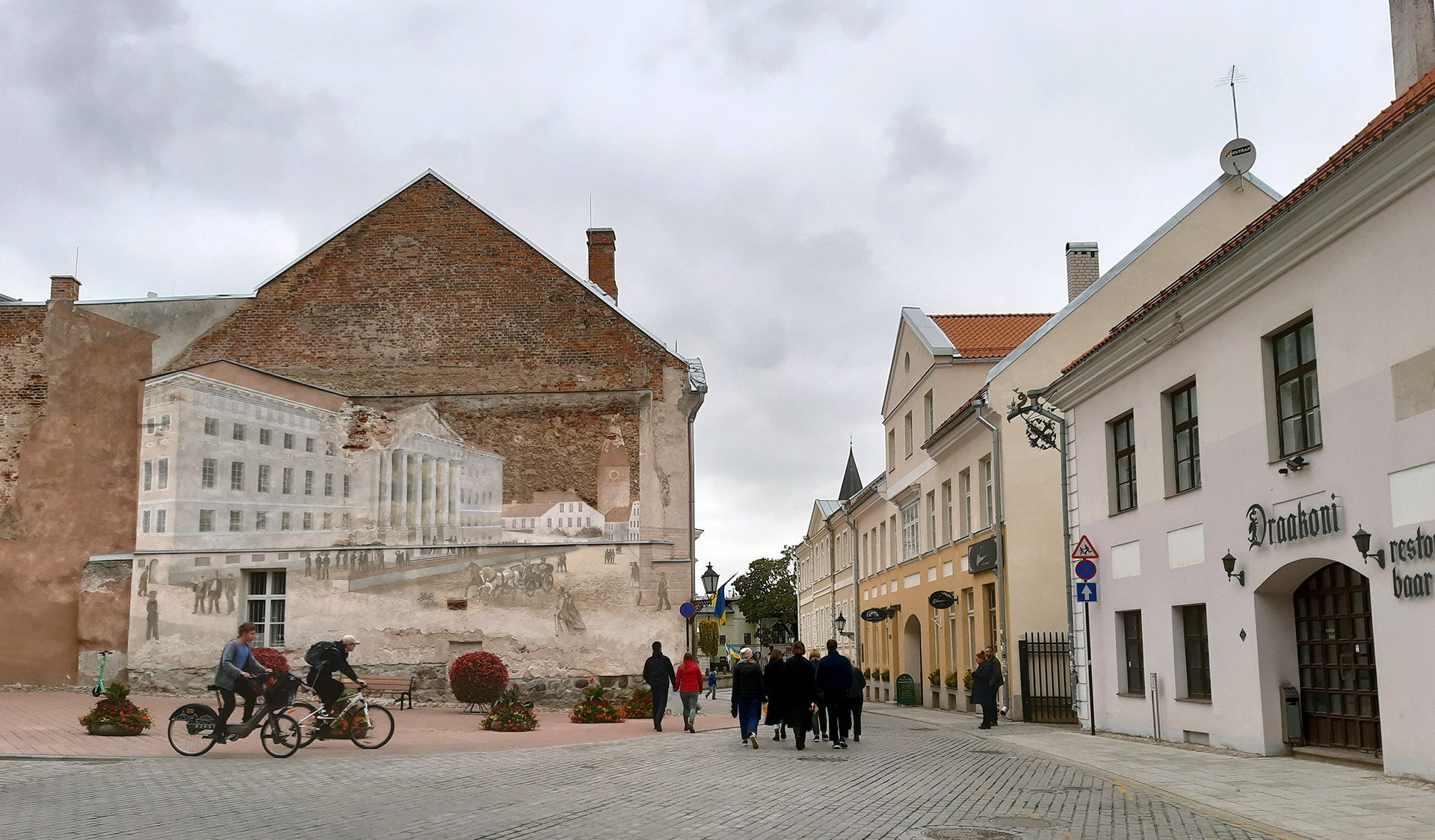Implications of Crises on the State of Democracy: theoretical and methodological tools for studying the East of Europe (5 cr), in Tartu, September 11-17, 2022
We were glad to meet with students and teacher in Tartu in September. Read more at the BAMSE network News & Events website!
Call for applications
Master’s students and advanced bachelor students of the network universities please note that the call for applications is open until 16 June, 2022.
Ukrainian students who have fled the war and given a place to study in one of the networks partner institutions can apply. Also Ukrainian students, who already are on an exchange in one of the networks institutions and who due to the war cannot return home in order to give them the possibility to prolong their exchange can apply.
You can find the application instructions in the call (in pdf format).
Welcome to apply!
Objectives of the intensive course
The BAMSE network projects are dedicated to analyzing various challenges of democracy through the lens of area studies. The thematic objective of the course is to provide an interdisciplinary understanding of how crisis situations affect the state of democracy. Students will learn to use a wide multidisciplinary toolkit and improve inter/transdisciplinary thinking.
The Covid-19 pandemic introduced limitations on civil rights around the world, endowing extraordinary powers to governments – regardless of the underlying political system. Whereas Western liberal democracies, relying on checks and balances, proved to be more resilient to authoritarian backsliding, in contrast, in some Eastern members of the European Union where democratic institutions are weaker, the underlying erosion of the rule of law foreshadowed rather different prospects. The ongoing war in Ukraine set a different international crisis-situation with a profound impact on people’s security perceptions and their willingness to accept new policy-changed. We elaborate on how the Baltic and East European societies and political systems evolved in times of crisis.
Introduction of the intensive course topics
The rule of crisis law and electoral behavior in the times of global crisis new and old alliances (University of Helsinki)
This section investigates the legal crisis-management strategies and the political-regional crossroads displaying the sudden changes in security considerations. The theme includes on the one hand, a comparison of political choices and the fluctuating evolution of the rule of law. On the other hand, the question how elections and electoral behavior have been affected during and because of the multiple crises in Eastern Europe in the last years will be discussed.
From Biopolitics to Necropolitics: from “Russian Wolrd” to Russia’s War(s) (University of Tartu)
This section addresses the illiberal development of Putin’s regime. The main topics include Russian domestic and foreign policy seen from a wider biopolitical perspective. Special attention is paid to the Kremlin discourse on Ukraine, which will be discussed with the concept of the Russian World, the Novorossiya project and Russia’s military campaign for “denazification” of the country.
Erosion of democracy and economic impact of populism (University of Latvia)
This section analyses to what extent spreading disinformation and conspiracy theories during the pandemic crisis followed by the Russian invasion in Ukraine have increased risks for democracy. The main risks to be analyzed will be an increased popularity of radical/populist parties in response to the rising indebtedness and inequality due to the Covid-19 lockdowns as well as economic slowdown and high inflation due to the sanction war.
Memory of the Second World War and the Soviet era (Vilnius University)
This section reviews which collective memories have been prominent during the current crises (pandemic and war), and what debates re-emerged, and if and how the experience of collective crisis has interacted with WWII and Soviet Era collective memory.

